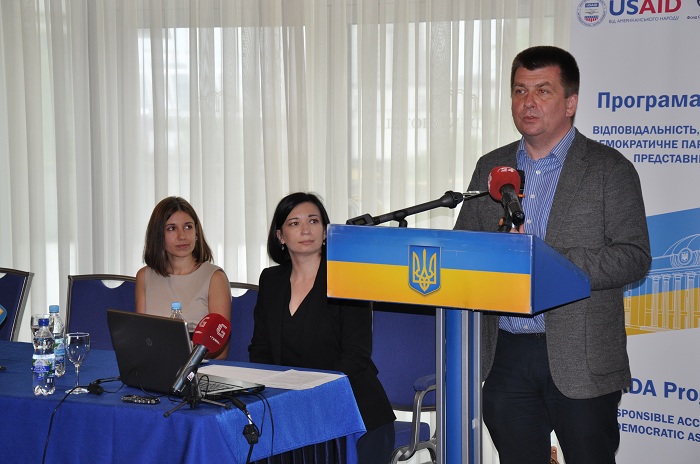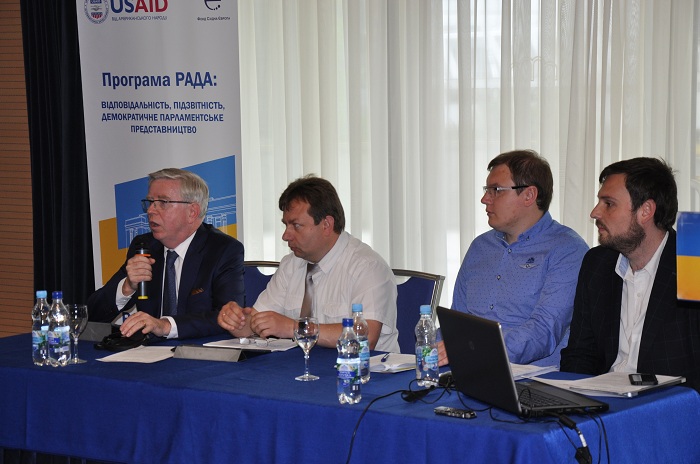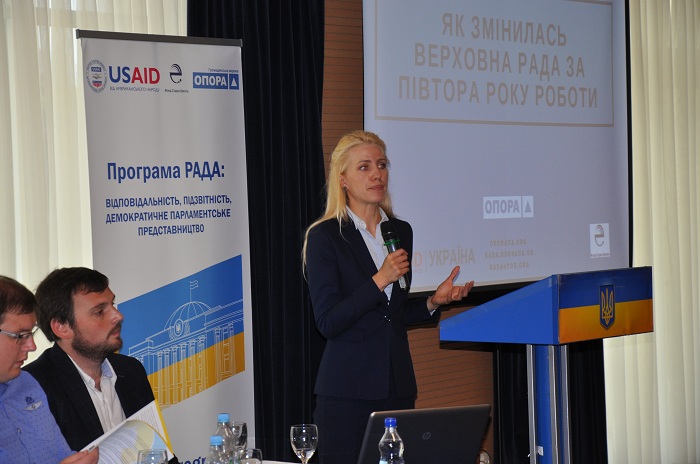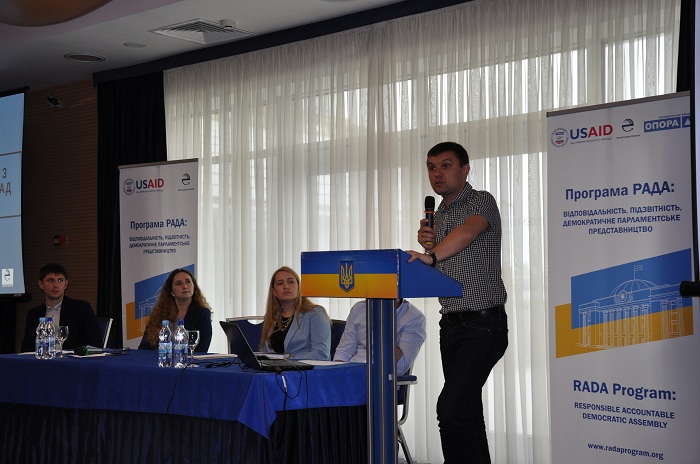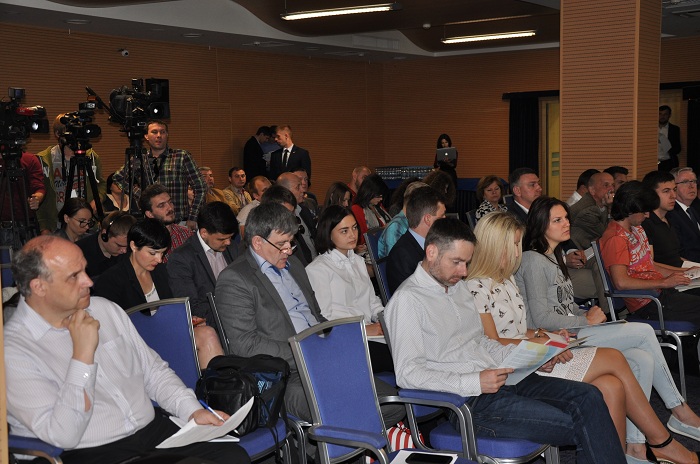Head of the Board of Civil Network OPORA Olha Aivazovska and Director of the Accountability, Responsibility, and Democratic Parliamentary Representation (RADA) Program Igor Kohut greeted the participants. According to Olha Aivazovska, the current Parliament has a record-breaking number of registered bills and draft resolutions over this period (6,755). Thus, MPs have registered 6,106 draft laws and resolutions in the Parliament over 1.5 years. The largest number of legislative initiatives were, of course prepared by the biggest factions. Petro Poroshenko Bloc participated in development of 6,730 draft legislative acts and People's Front – 3,884. However, AUU Batkivshchyna and Radical Party have the largest number of bills per MP – 82 and 77 respectively. The average efficiency of MPs from the People's Front, Samopomich Union and Petro Poroshenko Bloc is twice lower. Opposition Bloc has the smaller number of registered bills per an MP – 27 in average.
Director of OPORA's project under the USAID's RADA Program Olena Rybii presented an analysis of activities of 105 majoritarian MPs, published by OPORA monthly on website rada.oporaua.org. According of Olena Rybii, activities of majoritarian MPs may be assessed based on two criteria: law-making and district activities. Thus, MPs elected in western regions are the most active. The least active are the MPs from Zakarpattia and Donetsk oblasts. Almost a half of MPs do not participate in activities of local councils. 39% of MPs didn't file inquiries concerning the problems in their districts.
Pat Cox, Head of the European Parliament Mission aimed to develop a road map for Ukrainian Parliament reform, was a special guest on the event. The diplomat stated: “Perhaps the people have little time to understand what exactly the Rada is doing. However, legislative “tsunami” is really what society needs. The people are walking in circles and think that nothing happens in the Rada. That's why feedback is so important. Verkhovna Rada of Ukraine needs some help and we are ready to provide it.”
Verkhovna Rada has joined the international Declaration on Parliamentary Openness this year. MP of Ukraine Svitlana Zalishchuk told about Ukrainian experience in realization of the Declaration on Parliamentary Openness: “We have grown as an institution, – the MP told about positive changes in the Parliament of VIII convocation. – For example, we cooperate with NGOs, international donors, and are working on improvement of cooperation with the Apparatus of the Verkhovna Rada.” However, Svitlana Zalishchuk said the parliamentary committees lack transparency, and there is no financial reporting: “We can do a lot, but we want to do more,” – said the MP.
Acting Head of Apparatus of the Verkhovna Rada Volodymyr Slyshynskyi told about the progress in implementation of parliamentary reform.
Besides that, communication with the voters is an inherent part of MP duties. MP of Ukraine Ihor Huz told about his experience in establishing contacts with communities of his district. “The voters see an MP as a bag of money. The opinion that parliamentary activities are not important has been thrust on the voters over the last 20 years. 90% of MPs elected by party lists don't communicate with the people directly. Thus, the voters go this their problems to majoritarian MPs.” MP of Ukraine Oksana Yurynets has also touched the problem of communication between MPs and the voters in her speech. “Majoritarian MPs require resources for public receptions and assistants, as long as most of them are working as volunteers, driven by the desire to bring changes in the country. A voter should have an opportunity to meet an MP in his public reception.”
However, there are many drawbacks in the Verkhovna Rada. Ignorance of the Rules of Parliamentary Procedure is one of them, despite this mechanism is created to prevent the pressure of other branch upon the Parliament. According to OPORA's analyst Oleksandr Kliuzhev, the government had often pushed some bills referencing to the urgency, but later they were reconsidered, and amendments to them were adopted. As for the violations of the Rules of Parliamentary Procedure, the analyst stressed that often the time constraints for preparation of bills for consideration were not obeyed not because of the organizational matters but due to political motivations.
Besides that, NGO representatives presented parliamentary analysis instruments, and everyone interested will be able to participate in a workshop on open parliament data.
